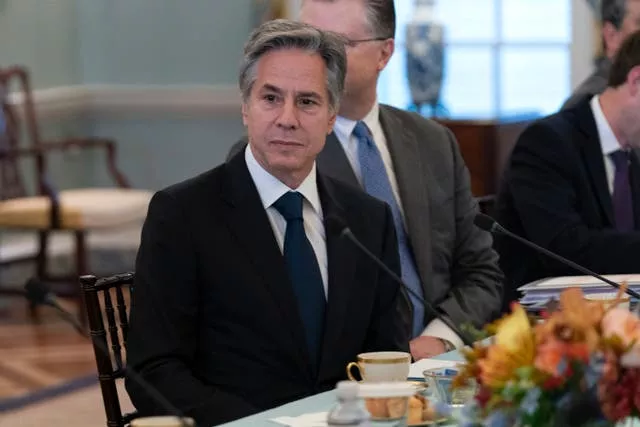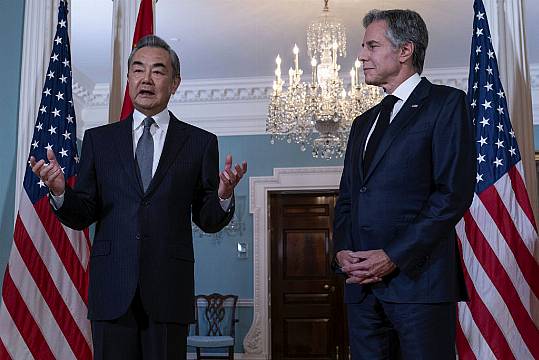President Joe Biden has met China’s foreign minister for talks that are viewed as the precursor to a potential meeting with Chinese President Xi Jinping next month.
The encounter was the latest in a series of high-level contacts between the two countries as they explore the possibility of stabilising an increasingly tense relationship at a time of conflict in Ukraine and Israel.
The White House said Mr Biden “emphasised that both the United States and China need to manage competition in the relationship responsibly and maintain open lines of communication” and he “underscored that the United States and China must work together to address global challenges”.
Mr Biden had been widely expected to talk with Wang Yi, a reciprocal action after Mr Xi met Secretary of State Antony Blinken in June.

Beijing has yet to confirm if Mr Xi will travel to San Francisco for the annual Asia-Pacific Economic Cooperation summit next month but Mr Biden has said a meeting between the two leaders on the sidelines is possible.
The US has been disappointed with China over its support for Russia in the war against Ukraine and its relative silence on the Israel-Hamas war.
“China should use whatever ability it has as an influential power to urge calm” in the Middle East, said US state department spokesman Matthew Miller.
“We know China has relationships with a number of countries in the region, and we would urge them to use those relationships, the lines of communication they have, to urge calm and stability.”
American officials believe the Chinese have considerable leverage with Iran, which is a major backer of Hamas.

The Chinese president last came to the US in 2017, when former president Donald Trump hosted him at his Mar-a-Lago resort in Florida.
Mr Biden, who took office in 2021, has yet to host Mr Xi on American soil. The two men last met in Bali, Indonesia, in November 2022, on the sidelines of the Group of 20 meeting of leading rich and developing nations.
The US-China relationship began to sour in 2018 when the Trump administration slapped hefty tariffs on Chinese goods worth 50 billion dollars (£41.3 billion).
It deteriorated further over a range of issues, including rights abuses, the South China Sea, Taiwan, technology and the Covid-19 pandemic.







